Inside the OU: Spring 2019
Happenings Around the OU
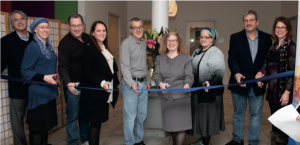
Representatives of the New England Yachad Advisory Board cutting the ribbon to the new Yachad Community Center.
New England Yachad Dedicates New Community Center
By Merri Ukraincik
Working to make the Greater Boston Jewish community more inclusive for individuals with disabilities, New England Yachad has spent decades breaking down walls. With the dedication of a new community center this past December, its dream of building walls has finally been realized.
The Yachad Community Center (YCC) is housed in the recently expanded Congregation Kehillath Israel (KI) building in Brookline, Massachusetts. Renovations transformed the 100-year-old synagogue into a multi-organizational campus that is a pioneering model of inclusion. The site provides New England Yachad, which previously shared space, with staff offices and designated program areas to build on the more than 400 activities it offers annually, making it possible to reach more individuals with disabilities who live on the margins of Jewish life.
At the ribbon-cutting, New England Yachad Director Liz Offen hailed the new campus as “a beautiful place our members can call home.” Yachad participants couldn’t
agree more.
“We have a big, safe new space and will have it for years to come,” says Jessica Shulman, who attends adult programs almost every day of the week.
For Yachad, the YCC is a game changer. With two multi-purpose rooms, it can now run several activities at once, host large events, and open a drop-in center and lounge. It will also offer culinary and life skills classes in its kosher kitchen.
New England Yachad currently serves over 350 individuals and their families. It is the fastest growing region of Yachad/The National Jewish Council for Disabilities and its second largest.
Maria Benet, a member of the New England Yachad Advisory Board, takes pride in what has been an explosion of activities and participation in recent years. She also credits Yachad with enabling her sister-in-law Becky, who is in her late fifties, to develop her Jewish identity. “Becky’s life revolves around Yachad.”
For six years and counting, the Ruderman Family Foundation has provided Yachad with invaluable leadership to ensure that its growth is sustainable. The foundation’s current four-year $700,000 grant has brought that collective vision to fruition in the YCC and the expansion of Yachad programming. It has also attracted funding from other partners, including a joint grant of the Nancy Lurie Marks Family Foundation/Combined Jewish Philanthropies for recreational programs serving older adults with autism and other developmental disabilities. In addition, Loren and Jamie Rosenzweig have made a generous five-year pledge to Yachad’s
Capital Campaign.
Reflecting on the the new building, Offen says “the YCC will enable Yachad to reach the most vulnerable among us by placing inclusion at the center
of Jewish life.”
This is a whole new chapter for Yachad, one of infinite possibility.
—OU Executive Vice President, Allen Fagin
New Internships Provide Real-World Experience
Aiming to find and cultivate new talent, the OU’s Human Resources Department recently launched a College Internship Program that promises to provide college students with essential skills and real-life work experience. “Most people think of the OU as a social-service organization such as NCSY or Yachad, or as Kashrut. They don’t realize that we have opportunities in IT, communications, accounting, fundraising, graphic design and so many other fields,” said OU HR Manager Josh Gottesman. The highly competitive, fourteen-week course, designed to prepare interns to be part of a work team, will have participants working for individual departments at the OU while attending weekly seminars on time management, resume building, effective communication and more. The first cohort, comprised of six students from colleges including Queens, Brooklyn, Yeshiva University and Touro and selected from among sixty applicants, began the intensive program this spring.
To learn more about the internship program, contact renee@ou.org.
Jewish Action Brings Ideas to Life at Yarchei Kallah
Focusing on some of the most impactful stories Jewish Action has covered in recent years, some 400 NCSYers engaged in lively and spirited conversations about the power of prayer, the vanishing of American Jewry and other timely, relevant topics at the recent NCSY Yarchei Kallah. The special Friday night learning event featured six concurrent sessions, each of which centered on source sheets with excerpts from the relevant Jewish Action article, as well as other sources.
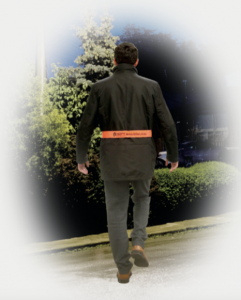 OU Provides Safety Reflector Belts for Member Synagogues
OU Provides Safety Reflector Belts for Member Synagogues
Following the tragic death of Dr. Richard Friedman, z”l, in Cedarhurst, New York, who was struck and killed by a vehicle on a foggy night in December, the OU spearheaded a safety initiative to encourage the wearing of safety reflector belts. The OU is providing reflector belts to all shuls in the OU synagogue network free of charge.
More than 10,000 belts have been ordered since the initiative was first launched. With the high demand, the production of thousands of additional belts is being sponsored by Evelyn and Larry Kraut as an expression of hakarat hatov to Hakadosh Baruch Hu for Larry’s recovery after a severe spinal injury. The incident occurred when Larry was struck by an SUV as he was walking home from shul on a Friday night, which resulted in a neck injury that required hospitalization and spinal surgery.
To order reflector belts, contact Alyson Papir at papira@ou.org.
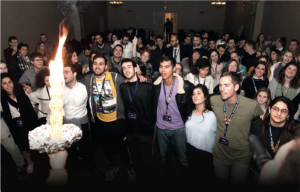 Birthright Alumni Reunion Keeps the Flame Alive
Birthright Alumni Reunion Keeps the Flame Alive
Birthright Israel participants singing during a heartfelt Havdalah ceremony at a Bring Israel Home Reunion held in Connecticut this past December. Bring Israel Home, a revolutionary Birthright Israel follow-up program run by the OU, is a 100-day challenge where participants gain points by engaging in Jewish activities (eating at a kosher restaurant, visiting a synagogue, participating in a Friday night Shabbat dinner, et cetera). Those who successfully complete the challenge get to spend a reunion weekend with the Israeli soldiers from their Birthright trip.
 OU Publishes New Comprehensive Guide for Kallah Teachers
OU Publishes New Comprehensive Guide for Kallah Teachers
A new kallah training manual, Ani L’Dodi V’Dodi Li: A Kallah Teacher Guide, published by the OU’s Heshe and Harriet Seif Jewish Learning Initiative on Campus (OU-JLIC) and the Pepa and Rabbi Joseph Karasick Department of Synagogue and Community Services, is sure to become a best-seller among kallah teachers everywhere. Based on the kallah training manual provided to OU-JLIC Torah Educators on more than twenty campuses, this tastefully designed book features the halachot and hashkafot of marriage and intimacy, as well as related topics including fertility, hair covering and more. Edited by Hani Lowenstein, OU-JLIC Associate Director of Community Projects, Ani L’Dodi V’Dodi Li: A Kallah Teacher Guide is currently available as print-on-demand or as a PDF e-book on Lulu.com.
Advocacy Wrap Up
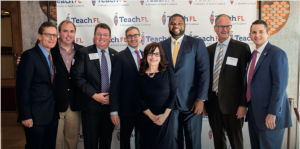
Teach Florida Executive Board with elected officials. From left: Steven Jacoby, Senator Joe Gruters, Rep. Randy Fine, Daniel Adler, Mimi Jankovits, Rep. Byron Donalds, Dr. Allan Jacob and Rep. Jason Fischer. Photo: Andrew Duaney
Teach Florida Hosts Successful Legislative Breakfast
In a tremendous kick-off to Teach Florida’s 2019 legislative advocacy for expanded state funding of school choice scholarships and Jewish school security, 350 community members and 30 elected officials from around the state attended Teach Florida’s Annual Legislative Breakfast in Boca Raton. State elected officials were rocked by rounds of standing applause for their $2 million allocation of Jewish schools’ security funding this year, and enthusiastically welcomed Senator Manny Diaz’s leadership on expanding school choice when he said, “We have no excuse not to fight until every student has the right to attend the school which best fits his or her needs.”
Teach Florida delivered more than $21 million in state funding for school security and tax-credit scholarships, helping 2,900 Jewish children attend day school this year. Since 2011, more than $88 million in state programs has helped thousands of Jewish students receive a quality education.
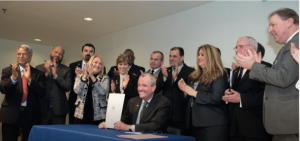
New Jersey Governor Phil Murphy, surrounded by state legislators and government officials, signs the security bill, increasing the state’s allocation to $22.6 million.
Thanks to Teach NJ, State Provides Historic, Unprecedented Security Funding For Nonpublic Schools
This past January, thanks to the advocacy efforts of Teach NJ—a member of the OU’s Teach Coalition and the leading advocacy organization for New Jersey’s nonpublic school children—New Jersey Governor Phil Murphy signed an historic bill into law that brought security funding for K-12 nonpublic schools to its highest level in the state’s history. Signed at Yeshivas Beis Hillel (YBH) in Passaic, New Jersey, the bill increases the security allocation for the state’s nonpublic schools to $22.6 million. That’s double the amount of the previous allocation, and six times the amount of the state’s allocation just three years ago. This $150 per-student funding will enable the schools to take a multitude of concrete steps, such as providing specialized security equipment and hiring more safety officers, in order to ensure students are protected from potential terror threats and attacks. Teach NJ is thankful to all of the bill’s champions in Trenton who worked tirelessly to get this done, including Assemblyman Gary Schaer and the other primary sponsors. During the signing ceremony, special mention was made of the advocacy efforts of Teach NJ.
We don’t need reports or studies nor do we need to look very far to know that children are vulnerable and need protection regardless of what school they attend.”
—Sam Moed, Teach NJ Chair
Allen Fagin Named to Transition Committee for New York State Attorney General Letitia James
Allen Fagin, OU Executive Vice President and the former Chairman of Proskauer Rose LLP, has been appointed to the Transition Committee for New York’s Attorney General Letitia James. The Committee consists of thirty-six individuals who will help identify strong candidates for positions with, and establish policy recommendations for, the Attorney General’s Office. The Transition Committee is a diverse group of experts in law, academia and government hailing from areas throughout New York State.
“I am honored to serve on Letitia James’ Transition Committee,” said Fagin. “It has been a privilege to work with her as New York City Public Advocate. We look forward to future collaboration now that she has assumed her new role as New York State Attorney General.”
Women in Action
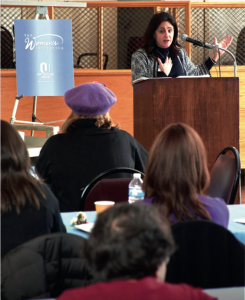
Psychologist Ditza Berger of Lander College for Women presents on mental health and the mikvah at a training seminar for mikvah attendants in Queens, New York.
The mikvah has undergone dramatic transformation over the past several decades as community leaders upgrade facilities to make the experience more comfortable and convenient for women. Joining this initiative, The Women’s Initiative (WI) has launched “Sense and Sensitivity,” a professional development training seminar for mikvah attendants, covering topics such as domestic violence, cancer, mental health, fertility, miscarriage and postpartum depression—and how these can relate to the experience at the mikvah. The seminar was piloted in Bala Cynwyd, Pennsylvania.
A second training seminar, held at the Young Israel of Hillcrest in Queens, New York, was attended by forty tri-state area mikvah attendants, with presentations by Avital Levin, Director of Education for Shalom Task Force; Psychologist Ditza Berger of Lander College for Women; Melissa Rosen, Director of National Outreach at Shasheret; Fertility Specialist Estee Silver, R.N. and Cheryl Epstein, Director of College and Seminary Guidance at Kosloff Torah Academy in Bala Cynwyd, Pennsylvania.
Both the Bala Cynwyd and Queens seminars, as well as the latest training held in Silver Spring, Maryland, were live-streamed, enabling participants from Cleveland, Ohio, Portland, Oregon, and even England to participate. There are also plans to create a five-week webinar series, giving mikvah attendants from all over the world easy access to these critical trainings.
It’s important that mikvah attendants are viewed as professionals, and having professional development gives them the support they deserve.”
—Rebbetzin Dr. Adina Shmidman, Founding Director, WI.
New Positions & Promotions
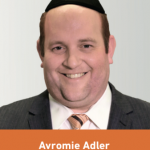 Avromie Adler recently joined Yachad as International Director. A licensed clinical social worker, Avromie is working closely with the dedicated staff of Yachad to further its mission and expand the scope of services currently being offered. Prior to joining Yachad, Avromie worked at Mishkon, a division of The Jewish Board, for seventeen years, spending the last six-and-a-half years as its Executive Director. Avromie lives in Far Rockaway, New York, with his wife and four children.
Avromie Adler recently joined Yachad as International Director. A licensed clinical social worker, Avromie is working closely with the dedicated staff of Yachad to further its mission and expand the scope of services currently being offered. Prior to joining Yachad, Avromie worked at Mishkon, a division of The Jewish Board, for seventeen years, spending the last six-and-a-half years as its Executive Director. Avromie lives in Far Rockaway, New York, with his wife and four children.
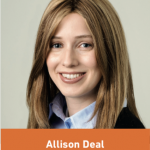 For kosher food pantries across the country, providing kosher food for hundreds of Jewish needy year-round is a massive undertaking, especially during Pesach and other holiday seasons. In response, the OU recently created Resources for National Kosher Food Distributions Program. This national network, headed by Founding Director Allison Deal, aims to unify kosher food distributors—including food pantries, Tomchei Shabbos and Bikur Cholims across the country—to give them better access to food distributors and seasonal products without cost to their needy recipients. Whether it’s coordinating purchasing practices and prices, locating and securing kosher food in food banks, working with donors to direct donations to where they are most needed, reducing food waste, or advocating for increased kosher food items from government sources, Allison hopes to enable these vital organizations to serve their communities with greater efficiency.
For kosher food pantries across the country, providing kosher food for hundreds of Jewish needy year-round is a massive undertaking, especially during Pesach and other holiday seasons. In response, the OU recently created Resources for National Kosher Food Distributions Program. This national network, headed by Founding Director Allison Deal, aims to unify kosher food distributors—including food pantries, Tomchei Shabbos and Bikur Cholims across the country—to give them better access to food distributors and seasonal products without cost to their needy recipients. Whether it’s coordinating purchasing practices and prices, locating and securing kosher food in food banks, working with donors to direct donations to where they are most needed, reducing food waste, or advocating for increased kosher food items from government sources, Allison hopes to enable these vital organizations to serve their communities with greater efficiency.
Allison joins the OU after serving as Director of the Kosher Food Network at Met Council in New York. Allison earned a MBA from Touro College, previously served as Chair of the Agency Advisory Committee at Food Bank for New York City and sat on committees in the NYC Human Resources Administration’s Emergency Food Assistance Program and City Harvest.
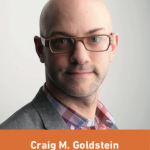 Craig M. Goldstein joins the OU as Chief Marketing Officer, after a distinguished fifteen-year career as a Marketing Executive with some of the world’s largest and most innovative advertising agencies and corporations. Craig has represented clients such as LEGO Group, McCormick & Company, Citibank, L.L. Bean and Mars. His role at the OU marks a return to his roots in the Jewish communal world, having begun his career at the Embassy of Israel in Washington, DC, and the Jewish National Fund. Craig brings his perspective and marketing expertise to bear on the full range of OU programming and activities across the global Jewish community. Craig earned a BA and MA in Middle Eastern studies and international relations at George Washington University. Raised in Philadelphia, he now lives in Brooklyn with his wife and two children.
Craig M. Goldstein joins the OU as Chief Marketing Officer, after a distinguished fifteen-year career as a Marketing Executive with some of the world’s largest and most innovative advertising agencies and corporations. Craig has represented clients such as LEGO Group, McCormick & Company, Citibank, L.L. Bean and Mars. His role at the OU marks a return to his roots in the Jewish communal world, having begun his career at the Embassy of Israel in Washington, DC, and the Jewish National Fund. Craig brings his perspective and marketing expertise to bear on the full range of OU programming and activities across the global Jewish community. Craig earned a BA and MA in Middle Eastern studies and international relations at George Washington University. Raised in Philadelphia, he now lives in Brooklyn with his wife and two children.
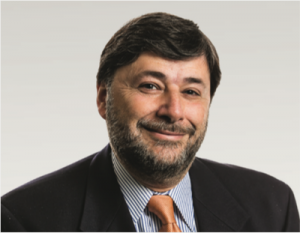 Dr. Jeff Lichtman: The Visionary Behind Yachad
Dr. Jeff Lichtman: The Visionary Behind Yachad
By Ken Saibel and Chani Herrmann
Over the past decades, Yachad has blossomed into a premier organization promoting inclusion in the Jewish community while offering critical services to individuals with special needs and their families. Leading that growth was Dr. Jeff Lichtman, who recently retired from serving as Yachad’s International Director, a position he held for more than thirty years.
Dr. Lichtman has written an entire chapter in Jewish history, teaching thousands of children, both formally and informally. Mishlei (22:6) teaches, “Chanoch l’naar al pi darko—train a child in the way he should go; when he matures, he will not deviate from it.” In Judaism, there is no specific way of educating the next generation in Torah because each individual needs to receive it in his or her own way. There is room in the tradition for everyone, and it’s our obligation to ensure that the Jewish tradition is accessible to everyone.
Dr. Lichtman epitomizes the notion of chanoch l’naar al pi darko. We have seen countless examples of how he accepted the obligation to teach every child not in the way convention may dictate, but in the way that made sense for that individual child. So many times, we heard stories of children floundering, kicked out of educational programs with nowhere to go until their parents found Dr. Lichtman—someone who was finally willing to teach their child in his or her own way.
Reflecting on the past thirty years, we are in awe of what Dr. Lichtman has accomplished. He not only created programs, he helped change a mindset and at the same time, transformed the entire Jewish community. He has taught us that inclusion is not a chesed, it is a natural right for all people, regardless of their abilities. This was always at the forefront of everything Dr. Lichtman did, and it was through his wisdom and vision that Yachad has grown into a vibrant global organization boasting ongoing Shabbatons, schools, vocational programs, thousands of social recreational programs and the largest network of summer camps and programs for Jewish children with a wide range of disabilities. His impact has reached well beyond individuals with disabilities. He never stopped dreaming of a world where everyone would be accepted and included.
Dr. Lichtman’s vision and guidance will carry on for many years to come and we thank him for giving us the wings to fly, for instilling within each of us a passion for inclusion and for always reminding us that every single person is created b’tzelem Elokim.
Ken Saibel is Associate Director of Yachad. Chani Herrmann is Director, NJ Yachad.
New From OU Press
By Rabbi Shmuel Goldin
OU Press/ Gefen Publishing
Following on the success of his Unlocking the Torah Text series on Chumash, Rabbi Shmuel Goldin has turned his skills to another classic text, the Haggada. There is no lack of commentaries on the Haggada, but what distinguishes Unlocking the Haggada is its focus on the big picture of what the Seder is all about. Instead of centering on the details of the text, Rabbi Goldin looks for the underlying structure of the Haggada—after all, as he notes, “Seder” means “order” or “structure.” Unlocking the Haggada answers such questions as: What are the overall goals of this richly textured service? How does the Haggada, step by step, enable the realization of these goals? What are the connections between one paragraph of the Haggada and the next? Why do the rabbis structure the evening as they do? Rabbi Goldin’s answers to these and other fundamental questions draw on sources from the dawn of Jewish history to today.
Unlocking the Haggada opens with five introductory essays, outlining the mitzvot of the Seder, historical and experiential perspectives on the Seder, and the preparations for the holiday. These essays set the stage for what is to follow. Rabbi Goldin creatively divides the sections of the Seder into four general units: “Setting the Stage: Preliminary Rituals,” “The Past,” “The Present” and “The Future.” Each of the Seder sections is prefaced by an introduction explaining that section’s origin, significance and place in the overall Seder, and the commentary explains how each passage is linked to what comes before. The commentary on the Haggada contains a more extensive “Food for Thought” section geared to motivate questions and discussion, thereby significantly enhancing the participatory nature of the Seder experience. All of this is accompanied by a visually-appealing layout, designed specifically to enable one to understand the structure of the Seder evening.
In language and style that will appeal to any reader, scholar to novice, Rabbi Goldin serves as our guide to understanding the complex web of rituals and recitations of the Haggada. Unlocking the Haggada is the perfect accompaniment for each Seder participant to take along on the extraordinary journey that is the Passover Seder.
The Hidden Light: Biblical Paradigms for Leadership
By Rabbi Dr. Jerry Hochbaum
OU Press
Through a lifetime of involvement in Jewish communal work, Rabbi Dr. Jerry Hochbaum experienced first-hand the nature of leadership in the Jewish community. A prominent professor of sociology at Yeshiva University, he also worked with the National Jewish Community Council and was executive vice president of the Memorial Foundation for Jewish Culture, where his major priority was the organization of a leadership development program for the global Jewish community. The leadership issues that Rabbi Dr. Hochbaum encountered in the real world echoed for him in the Torah’s depiction of human interaction and the development and growth of the Jewish people.
The Hidden Light: Biblical Paradigms for Leadership, arranged according to the parshiyot of the Torah, is far from a conventional “parashat hashavuah” compendium. It is a fascinating exploration and distillation of the Torah’s views on leadership. For example, in one of his selections on Parashat Noach, he contrasts the leadership style of Noach with that of Avraham:
Rabbi Avraham Yitzchak HaKohen Kook explains that when the Torah tells us, “et ha-Elokim hit’halekh Noach,” it means that Noach goes along with [a] graduated, step-by-step moral suasion, until the people of the time might become ready for higher levels of religiosity and ethics. This is Noach’s model of moral leadership. He supports gradual, incremental religious re-socialization.
But this is just one of two models that appear in the Torah. A second one, Rav Kook points out, is pioneered by Avraham. Avraham assumes a much more radical posture. As a young man, he, too, resides in a godless society. When he comes to recognize the moral bankruptcy of that civilization, he flees it. In contrast to Noach, Avraham’s self-description in the Torah is “et ha-Elokim asher hit’halakhti lefanav.” Avraham walks not with God, but before Him. He is not ready to accept the step-by-step religious re-socialization of his parental society. He abandons it and begins to teach, preach, and disseminate a whole, new radical faith, more attuned to Torah and to the service and worship of one God. There are no graduated steps for Avraham.
In our contemporary, less-than- perfect moral civilization, we need to consider which of these two models to guide us. Shall we be gradualists like Noach or maximalists like Avraham? Which would our leadership choose?
Combining a novel approach with sensitivity and insight, The Hidden Light: Biblical Paradigms for Leadership rewards the reader with a fresh view of the weekly parashah.


